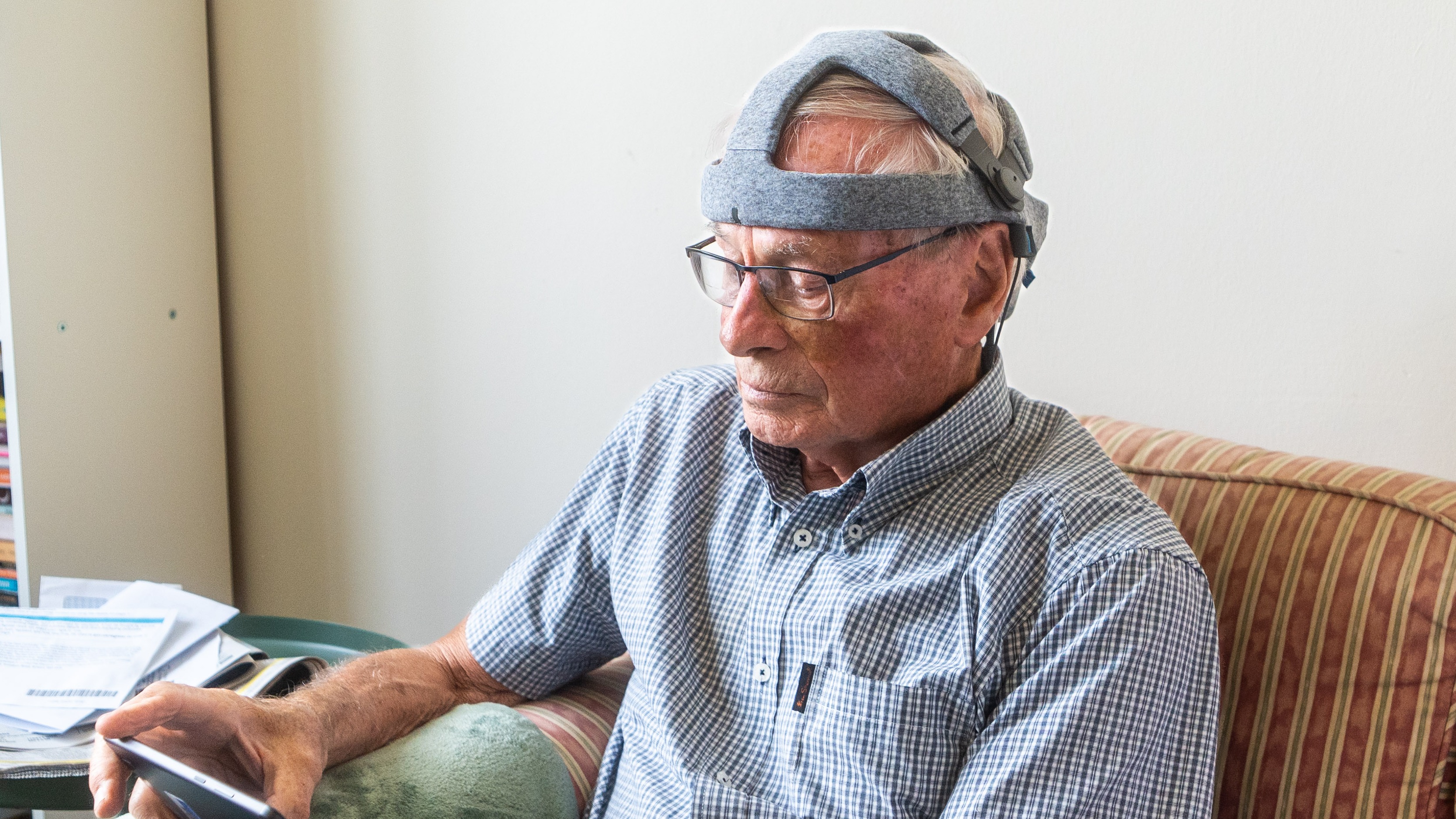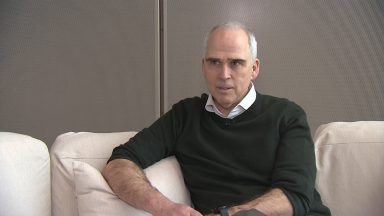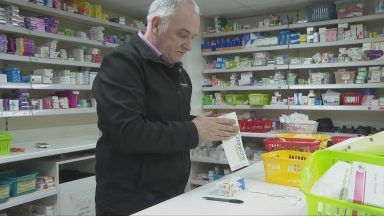A three-minute brainwave test could detect signs of memory problems linked to Alzheimer’s disease years before clinical diagnosis is possible, a trial has found.
Researchers suggest this could be a cheap tool for those who struggle to get a diagnosis, and can be used in multiple settings, including the home.
Fastball, developed at the University of Bath, is a new method that uses EEG (electroencephalogram), a test that records the electrical activity of the brain by placing small sensors on the scalp.
It presents patients with rapid images and records the brain’s automatic response.
The study, led by experts from the universities of Bath and Bristol, and published in the journal Brain Communications, included 52 patients with mild cognitive impairment (MCI) – a decline in memory or thinking skills – and 54 healthy older adults.
Not all MCI cases progress to Alzheimer’s disease, but it can be an early sign and risk factor for the condition.
As well as the Fastball test, patients on the trial also completed a number of neuropsychological assessments of memory, sustained attention and general cognitive function.
Researchers found that those with amnestic MCI – when the main symptom is significant memory loss, such as forgetting appointments and recent conversations – showed significantly reduced responses to the Fastball test compared to healthy patients and those with non-amnestic MCI.
Researchers re-tested the group after one year and found Fastball “showed moderate to good test-retest reliability” in healthy older adults.
The study also demonstrated for the first time that the test can be performed in the home of patients.
Dr George Stothart, a cognitive neuroscientist in the Department of Psychology at the University of Bath, who led the study, said: “We’re missing the first ten to 20 years of Alzheimer’s with current diagnostic tools.
“Fastball offers a way to change that – detecting memory decline far earlier and more objectively, using a quick and passive test.”
The Alzheimer’s Society estimates there are around 982,000 people with dementia in the UK, but more than a third do not have a diagnosis.
The number is expected to rise to 1.4 million by 2040.
Chris Williams, chief executive of BRACE Dementia Research, which supported the study, described Fastball as an “incredible tool” that could offer anyone who, for whatever reason, cannot access a dementia diagnosis in a clinical setting.
Dr Julia Dudley, head of research at Alzheimer’s Research UK, said that too many families face dementia without answers, with one in three people with the condition living without a diagnosis.
“Therefore, it’s encouraging to see studies exploring potential ways to detect memory problems earlier,” she said.
“This study, in a small group of people, suggests that it can be used to measure mild memory impairment, which for some people can be an early sign of diseases like Alzheimer’s.”
The trial results come as a new report by the Alzheimer’s Society warned that one in five people impacted by dementia receive no support.
A survey, carried out for the charity by Walnut Unlimited, included almost 3,500 impacted by dementia, such as patients, loved ones and unpaid carers.
Just a third said their experience of diagnosis was positive, while long wait times and seeing multiple healthcare staff were barriers for 52% and 41% of people, respectively.
Almost a million people are living with dementia, yet its scale and the day-to-day realities often remain hidden, Professor Fiona Carragher, chief policy and research officer at Alzheimer’s Society, said.
“These findings tell us that far too many people are going without the help they need, whether it’s support after a diagnosis, trained care professionals, or someone to turn to when things get hard.”
The charity also found more than a third (35%) of people living with dementia are scared of getting diagnosed, while 31% are apprehensive about talking to healthcare professionals.
Professor Carragher said: “An early and accurate diagnosis is vital to enable people living with dementia to access the care, support and treatments they so desperately need.
“Those who have been able to access these treatments experienced benefits, but we simply aren’t diagnosing people early or accurately enough to see current and prospective treatments rolled out widely.”
Follow STV News on WhatsApp
Scan the QR code on your mobile device for all the latest news from around the country





























